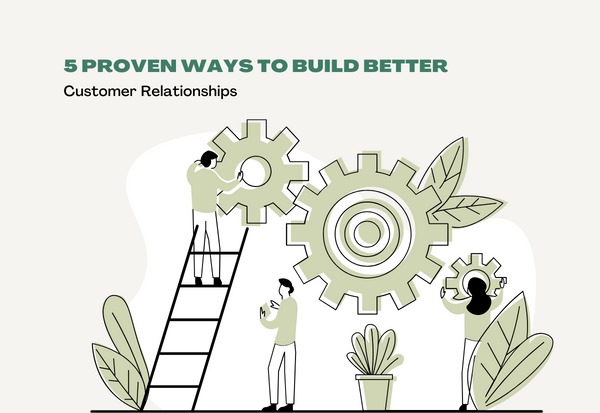In the fast-paced business world, forging resilient and meaningful customer relationships is pivotal for long-term success. Customers represent more than mere transactions; they are the lifeblood of any enterprise. Establishing authentic customer connections can increase loyalty, higher retention rates, and invaluable word-of-mouth referrals. This article delves into five tried-and-true strategies to enhance your approach to building robust customer relationships, emphasizing critical principles of communication, empathy, and trust.
Master the Art of Effective Communication
Effective communication stands as the foundation of any flourishing customer relationship. It encompasses active listening, clear articulation, and responsiveness. Companies must prioritize and excel in communication across all interaction points to construct superior customer relationships.
Active listening entails giving full attention to customers, understanding their needs, and asking clarifying questions when necessary. This demonstrates a genuine commitment to assisting them and acknowledging their importance.
Clear articulation is equally vital. Businesses should convey information concisely and understandably, avoiding technical jargon that can befuddle customers. Honesty and transparency in communication establish trust, as customers appreciate forthrightness about products, services, pricing, and policies.
Responsiveness is the final crucial aspect of effective communication. Timely responses to inquiries or concerns underscore a dedication to customer satisfaction. Employing various communication channels such as email, phone, and social media ensures customers can reach you in their preferred way, demonstrating your commitment to their contentment.
Embrace Personalization
Personalization serves as a powerful tool in constructing stronger customer relationships. Contemporary customers expect interactions that transcend one-size-fits-all approaches. Leveraging customer data and technology enables companies to tailor their offerings to individual preferences and needs. This might encompass personalized recommendations, exclusive offers, or content that aligns with a customer’s past interactions with your brand.
Personalization fosters a sense of being valued and understood. When customers feel that a business comprehends their preferences, they are more likely to engage consistently.
Cultivate Empathy
Building stronger customer relationships requires genuinely caring about your customers and their experiences. This entails not only addressing their needs but also acknowledging their emotions.
Empathy is especially crucial when handling customer complaints or issues. Instead of adopting a defensive posture, take a moment to empathize with the customer’s frustration and work toward a solution that satisfies both parties. This approach can transform a negative situation into a positive one and solidify the customer’s trust in your brand.
Beyond issue resolution, empathy can be proactive. Anticipate your customer’s needs and provide solutions before they recognize a problem. For example, an e-commerce platform might offer live chat assistance during the checkout process to assist customers with potential challenges.
Champion Consistency
Consistency is a cornerstone of building stronger customer relationships. Customers appreciate predictability and reliability in their interactions with a business. This encompasses consistent product or service quality, pricing, and customer experience.
Consistency establishes a solid foundation for enduring relationships. For example, a restaurant that consistently delivers exceptional cuisine, maintains a clean environment and offers friendly service is likelier to repeat business.
Furthermore, consistency should extend across all communication channels and touchpoints. Whatever manner a customer reaches you, they should receive a uniform and positive experience.
Embrace Proactive Engagement
Businesses should not wait for customers to initiate contact with questions or concerns to optimize customer relationships. Proactive engagement involves taking the initiative to reach customers, request feedback, and deliver value.
Surveys, feedback forms, and follow-up emails are potent tools for gathering customer insights and enhancing your offerings. By demonstrating your appreciation for their opinions, you commit to continuous improvement based on their input.
Additionally, businesses can provide value through informative content, newsletters, and exclusive offers, keeping customers engaged and informed. This makes customers feel like valued members of your brand community.
Conclusion
In a world of choices, businesses that prioritize enhancing customer relationships gain a distinct competitive edge. Effective communication, personalization, empathy, consistency, and proactive engagement are five proven strategies to foster stronger customer connections. By implementing these strategies, businesses can improve customer loyalty and retention and differentiate themselves in a competitive marketplace. Always remember the success of any business hinges on the strength of its customer relationships.





